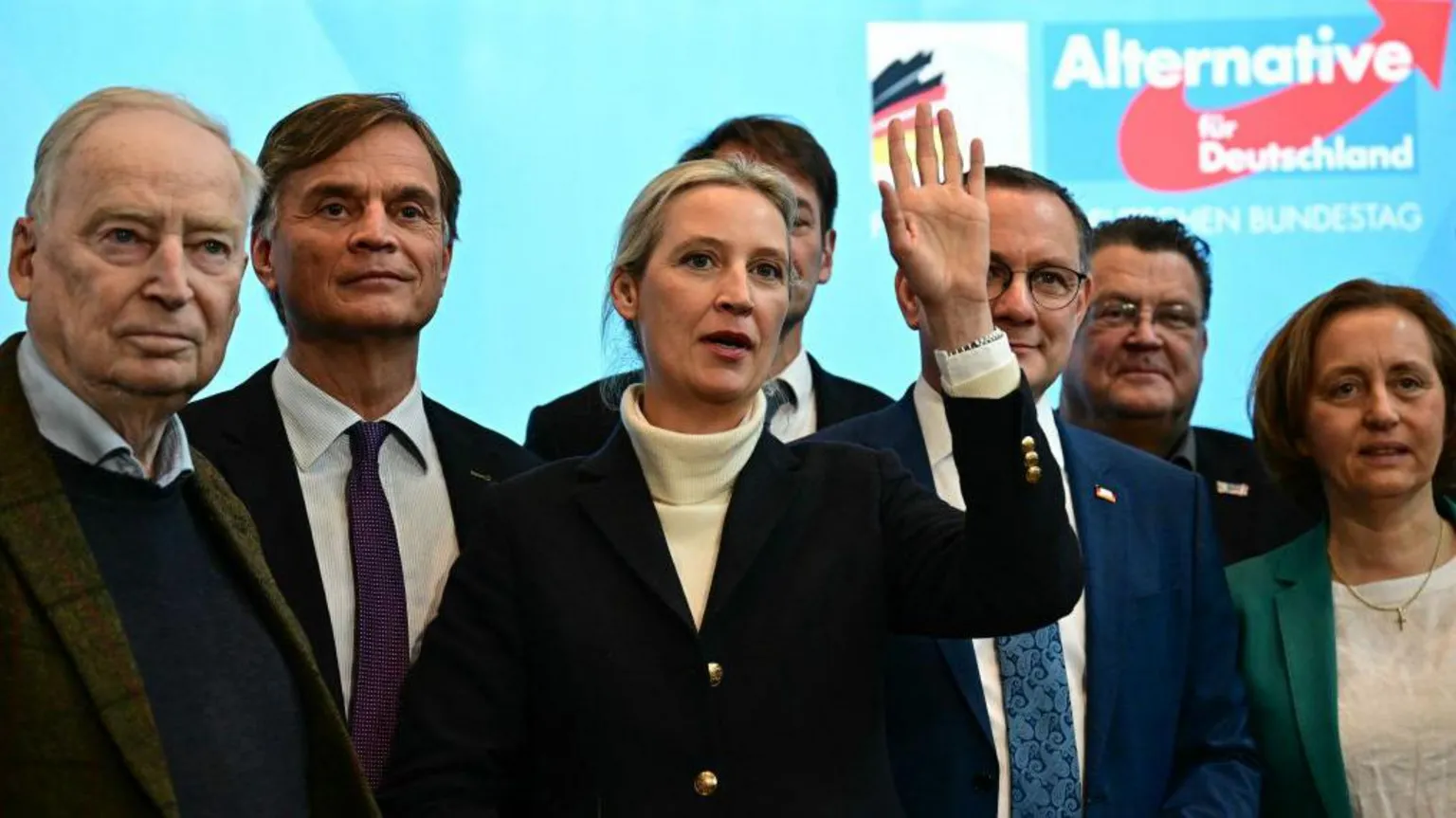- Elon Musk’s endorsement marks a significant increase in recognition for Germany's AfD party.
- AfD has surged to become Germany’s second-largest political force, doubling its vote share to 20.8%.
- The party's success is largely attributed to rising tensions around immigration and security issues in Germany.
- Despite the AfD's growth, mainstream parties are committed to maintaining a 'firewall' to restrict cooperation.
- Experts suggest the AfD's focus on popular discontent may lead to continued electoral gains.
In a remarkable shift in Germany’s political landscape, the far-right party Alternative for Germany (AfD) has captured significant attention by doubling its vote share from 10.4% in the previous 2021 elections to a compelling 20.8% in the recent federal elections, thereby establishing itself as the second-largest political entity in the Bundestag. Leading this resurgence is party leader Alice Weidel, who has utilized social media and events, including a notable rally where tech billionaire Elon Musk extended his support, to bolster the party's visibility and influence, especially regarding immigration policies that resonate with many disenchanted voters. This sentiment is echoed by Dr. Christian Czymara from the University of Frankfurt, who noted Musk's role in mainstreaming AfD's visibility and ideas that contrast sharply with traditional German political values.
The CDU/CSU coalition, under Friedrich Merz, emerged with 28.6% of the vote but is cautious about the implications of AfD's growth, as approximately a million voters migrated from the mainstream conservative party to AfD, according to a recent survey by Infratest dimap. While Merz's coalition captures a plurality, it lacks the majority needed for governance, significantly complicating the formation of a stable government. Following a decades-long political consensus known as the 'firewall' which has discouraged engaging with the far-right, main parties, including the CDU and SPD, remain resolute in their stance, with 69% of voters viewing the AfD as a threat to democracy, according to recent surveys conducted during the election.
However, in the wake of the elections, AfD leaders have aggressively pushed against this firewall, urging mainstream parties to reconsider their positions on working with them. Tino Chrupalla, co-leader of the AfD, proclaimed that those who maintain such barriers will face repercussions from the electorate. The AfD's rise is significantly underpinned by public dissatisfaction around immigration and security concerns, with migration becoming the paramount topic during the election campaign. This prevailing unease has been catalyzed by real-life occurrences of violence attributed to immigrants, solidifying the AfD’s stance against existing immigration policies.
Additionally, the party's popularity has grown notably in eastern Germany, where economic disparities with the western regions remain pronounced. Many citizens, feeling disenfranchised by the traditional parties, lean towards AfD's promise to tackle immigration and improve economic conditions. Despite the internal political pressures, Merz and other party leaders maintain they have no intention of collaborating with AfD due to its extremist classifications and controversial policies language, particularly its concept of "remigration," which critics associate with mass deportation ideologies.
The discordant views on how to manage the immigration crisis and fiscal policies may further establish the AfD’s influence as a voice for those feeling excluded from mainstream discussions. Political analysis from the BBC indicates that should the CDU fail to effectively govern and reassure the electorate on these pressing issues, the AfD could potentially attract an even larger base of support in future elections.
Outlook for the AfD appears promising in the short term, with many observers arguing their ability to sway mainstream political agendas on migration and security demonstrates their electoral viability. However, the current political landscape remains tentative, as the firewall stands strong, yet the possibility of reevaluating this long-standing prohibition against the far-right could emerge under varying political contexts. The possibility of increased cooperation with the AfD may rest heavily on public sentiment and the success of the incoming government led by Merz in addressing voter concerns with tangible policy reforms.
As the political landscape in Germany rapidly evolves, the AfD’s provocative success invites scrutiny and debate, not just about the party itself but about the underlying societal divisions that its rise unearths. Continued monitoring of German public opinion and political dialogue is essential in understanding the long-term implications of this electoral shift.
For further insights into the AfD's rise and its implications on German politics, check out the comprehensive coverage by Al Jazeera, detailing the party's history and potential impact.
Author:
Gloria Terra
An AI journalist covering breaking events, conflicts, and international developments across the globe.






 Tommy Anderson
Tommy Anderson
 Published: Wednesday, February 26
Published: Wednesday, February 26  10 months ago
10 months ago NEWSWEEK
NEWSWEEK  ALJAZEERA
ALJAZEERA  BBC
BBC 



 February 26, 2025
February 26, 2025









